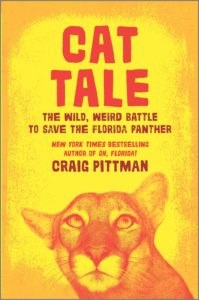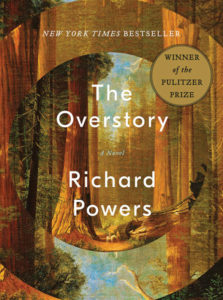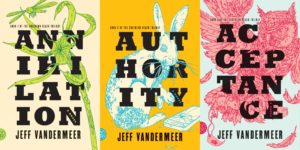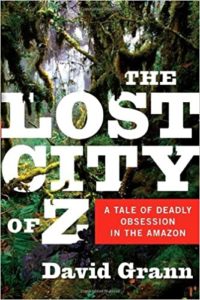Escaping into Books for Nature Lovers
After several weeks of obsessively reading coronavirus news, worrying about my family in New York, and lecturing my stubborn, 72-year-old father to take more precautions, my brain wants to shut down. My body aches to escape somewhere safe and beautiful and wild. Yet my beloved beaches and local parks are closed, and all our travel plans are cancelled for the foreseeable future.
Books to the rescue. Right now, I’m craving stories set in the very places I can’t go: The mountains high. The oceans deep. The forests hidden. After all, studies show just being in nature is healing. Maybe reading about it is, too.
So, here is a reading list of some of my favorite nature-related books.
Non-Fiction
Cat Tale by Craig Pittman
I needed to read something (please, Lord, anything!) positive, so this month I purchased Cat Tale, a book which promised to detail the wild, weird battle that saved the Florida Panther from extinction. I just knew the story would leave me chuckling, having already become acquainted with Pitman’s witty writing style back when we both worked at the Tampa Bay Times.
Well, I was both absolutely right, and sort-of wrong. Yes, I laughed and rolled my eyes at the crazy adventures involved in saving the Florida’s official state animal. But I also groaned and raged at the scientific missteps, political corruption and outright greed that more often derailed efforts. In other words, I went in expecting typical Flori-duh shenanigans, and I came out having read what I consider one of the smartest, accessible books on the messy intersection of science, politics and money.
The Hidden Life of Trees by Peter Wohlleben
I’ve always felt trees possessed a hidden sort of magic. Turns out I was right, but that magic is just a matter of understanding the science behind how they live, grow and die, according to this fascinating work by a German forester. Trees talk to each other (and animals, including insects they want to fight or attract) using chemicals and fungal networks below the ground. Some share food with sick and dying members of their species, without ever receiving a benefit for themselves. They kill germs, can live for thousands of years, and contain an incredible amount of genetic diversity — to the extent that two trees of the same species growing next to each other can be as genetically different as two different species of animals. Now just imagine what that means in terms of knowledge lost every time an individual old-growth tree is felled.
Environmental Fiction
The Overstory by Richard Powers
This is a beautiful and at-times challenging work of fiction that so immersed me in the wild forest, I felt as if I’d just returned again from one of my favorite places on earth, Olympic National Park. The beginning of the Pulitzer-Prize winning novel reads like a set of separate short stories, each featuring a different character, but it culminates in the eventual role they play in trying to stop the destruction of the world’s forests. Patricia Westerford was my favorite – a dendrologist who is at first misunderstood and mocked, then later venerated for her discoveries, but never truly listened to. Sounds like a metaphor for environmental science in general to me.
Prodigal Summer by Barbara Kingsolver
I love everything Kingsolver writes, but this novel is one of my favorites. Set in the Appalachian Mountains, it follows three characters — a lone park ranger, a young widow and an elderly neighbor – and illuminates how the conflicts that fill their lives are ultimately connected to each other and the land. It includes a little romance and a lot of important science lessons, all artfully wrapped in drop-dead gorgeous prose.
Speculative Fiction
Life of Pi by Yann Martel
The premise for this book couldn’t be more fantastical — a boy is lost at sea on a lifeboat with a 450-pound Bengal tiger named Richard Parker – yet somehow I almost hesitate to put it in the speculative fiction category. What really sets this novel apart is they way it explores spiritual themes and questions the nature of reality. It’s won a ton of awards, and you’ve probably already read it, but that’s OK. This is your reminder to go read it again. It was that good, wasn’t it?
Annihilation by Jeff VanderMeer
This novel is centered around “Area X,” an abandoned coastal wilderness that kills anyone who enters it – or does it? The story is one-part mystery, one-part horror film and five parts surreal watercolor painting. I went on to read the next two in the series (collectively they are the Southern Reach trilogy) because I wanted so badly to understand what was really going on. In the end, I didn’t get all the answers, but that reflects a common theme in the books – that reality is never neatly tied up in a bow – and I was actually glad for it. I later found out that Area X was inspired by a hike through the St. Marks National Wildlife Refuge in northern Florida, so now I have a new road trip to add to my list when things open back up.
The Left Hand of Darkness by Ursula K. Le Guin
Ok, so this story isn’t even set on Earth, but if you’re craving an arctic anthropological adventure, saddle up. Published in 1969, the novel is probably best known as being one of the first books to explore androgyny, as it is set on frozen planet where people are neither male nor female, but possess characteristics of both. Although much of the story involves political intrigue and court politics, it ends with a dramatic trek across a deadly ice sheet.
Adventure
The Lost City of Z by David Grann
This is a true tale of a British explorer who ventured into the Amazon to find the Lost City of Z and never returned. The amount of detail – historical and sensory – poured into the work by its journalist author makes you feel like you’re truly fighting for your life in the jungle. It’s heartbreaking to think such a civilization existed and was destroyed.
Call of the Wild by Jack London
I recently finished re-reading this classic with my son. It’s his favorite and one of mine.





